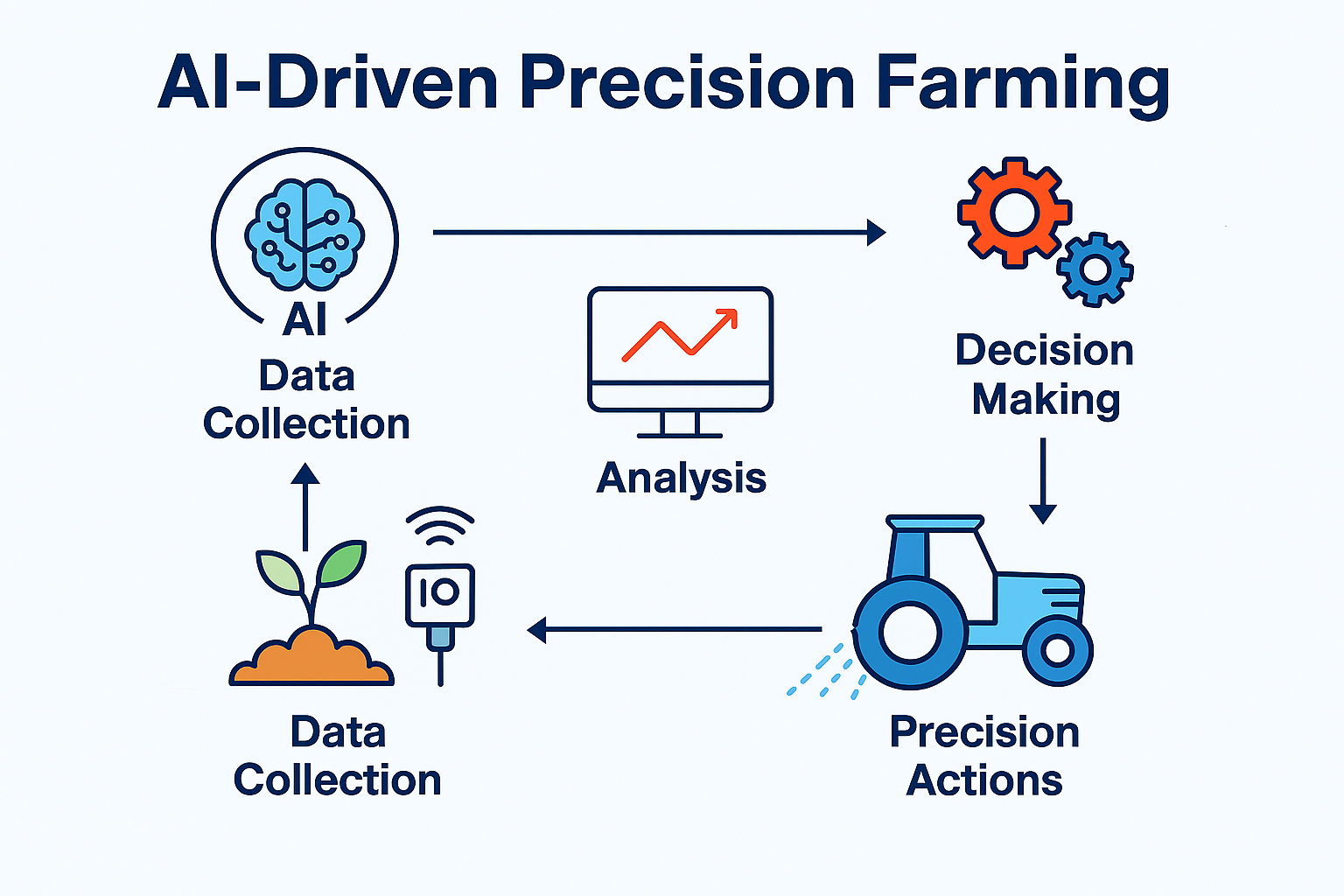
AI-Driven Precision Farming is a modern agricultural approach that uses artificial intelligence to optimize every aspect of crop production. It combines data from various sources—like sensors, satellites, and weather forecasts—and applies machine learning algorithms to help farmers make smarter, more efficient decisions.
What Is Precision Farming?
Precision farming is about doing the right thing, at the right place, at the right time. Instead of treating an entire field uniformly, it allows farmers to manage crops at a micro level—adjusting irrigation, fertilization, and pest control based on specific needs of different zones within the field.
How AI Enhances Precision Farming
AI adds intelligence to this process by:
- Analyzing real-time data from soil sensors, drones, and weather stations
- Predicting crop health issues before they become visible
- Recommending optimal input levels (water, fertilizer, pesticides)
- Automating decisions like when to irrigate or harvest
For example, AI can detect early signs of disease in crops using image recognition and alert farmers to take action before the damage spreads.
Benefits of AI-Driven Precision Farming
- Higher Yields: AI helps maximize productivity by tailoring care to each plant’s needs.
- Lower Costs: Reduces waste of water, fertilizers, and pesticides.
- Sustainability: Minimizes environmental impact through efficient resource use.
- Risk Reduction: Predicts weather-related risks and crop failures early.
Technologies Involved
- Machine Learning: For pattern recognition and predictive analytics
- IoT Sensors: For soil moisture, temperature, and nutrient tracking
- Drones & Satellite Imaging: For aerial crop monitoring
- Cloud Computing: For storing and processing large datasets